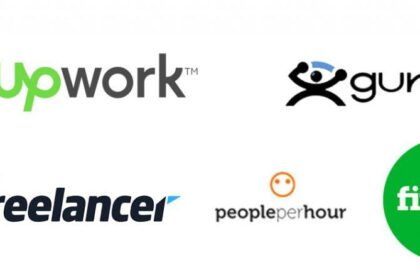In a world increasingly defined by remote work and digital connections, the ability to network effectively as a freelancer has never been more crucial. Imagine standing at the edge of a vast expanse, akin to a bridge waiting to be built—your skills and creativity on one side, a sea of potential clients and collaborators on the other. “Building Bridges: Mastering Freelance Networking Strategies” invites you to embark on a journey across this metaphorical landscape, exploring the essential strategies that can transform fleeting introductions into lasting professional relationships. Whether you’re a seasoned freelancer looking to expand your horizons or a newcomer eager to establish your footing, this article will equip you with the tools and insights needed to navigate the intricacies of networking. From leveraging social media to fostering genuine connections, we’ll uncover the art and science behind building meaningful bridges in the dynamic world of freelancing. Join us as we delve into the strategies that will not only enhance your professional network but also create pathways to new opportunities and growth.
Freelance Writing
is more than just penning down words; it’s about creating connections that can propel your career forward. Networking is an essential skill for freelancers, allowing them to find new clients, exchange ideas, and gain valuable insights. To effectively network in this dynamic field, consider engaging with communities both online and offline. Utilize forums, social media groups, and professional networks to meet like-minded individuals. Attend industry conferences, workshops, and local meetups where you can interact with other writers and industry professionals. Remember, every conversation holds the potential for a new opportunity.
Moreover, showcasing your work and expertise is equally vital. Create a portfolio that reflects your unique voice and versatility. Use blogs, social media platforms, and online marketplaces to share your writing samples and connect with potential clients. It’s also beneficial to nurture relationships by offering assistance or sharing valuable resources, as this builds a reputation of trust and collaboration. Consider these strategies to elevate your journey:
- Participate in writing challenges and prompts to engage with other writers.
- Collaborate on projects to enhance visibility and skill development.
- Join affiliate programs or writing collectives to broaden your reach.
For a more structured approach, track your networking efforts and identify your most valuable connections:
| Name | Connection Type | Follow-Up Date |
|---|---|---|
| Jane Doe | Editor | 10/15/2023 |
| John Smith | Fellow Writer | 10/30/2023 |
| Emily Brown | Client | 11/05/2023 |
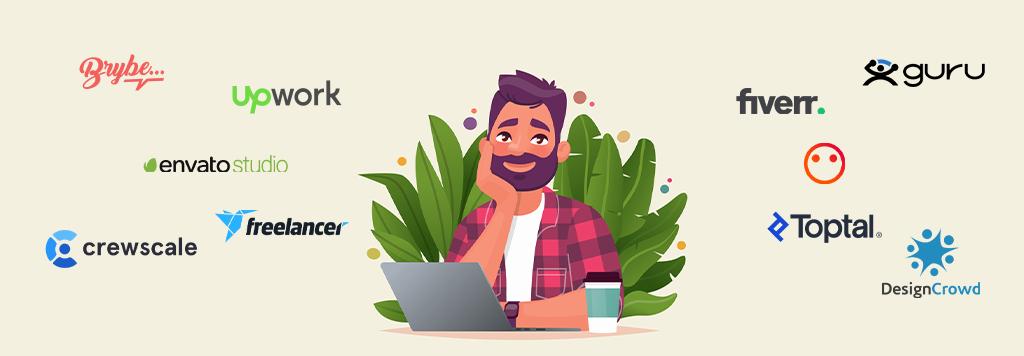
Freelancing Platforms
In the ever-evolving landscape of freelancing, platforms serve as essential gateways that connect skilled professionals with clients seeking specific expertise. Whether you’re a seasoned freelancer or just starting, understanding the unique features and offerings of various platforms can significantly enhance your visibility and opportunities. Here’s a quick overview of some popular where you can establish your presence and network effectively:
| Platform | Specialty | Best For |
|---|---|---|
| Upwork | General freelancing | All skill levels |
| Fiverr | Creative services | Quick gigs |
| Freelancer | Various projects | Competitive bidding |
| 99designs | Graphic design | Designers |
| Toptal | Tech talent | Top-tier professionals |
Finding the right platform is crucial for maximizing your success in the freelance world. Each platform has its own community and dynamics, making it important to adapt your networking strategies accordingly. To navigate these environments effectively, consider engaging in the following practices:
- Profile Optimization: Craft a compelling and clear profile that highlights your strengths and past experiences.
- Client Communication: Develop good communication practices by promptly responding to inquiries and being transparent about your availability.
- Feedback and Reviews: Ask for feedback post-project completion to build a trustworthy reputation that attracts more clients.
- Network Actively: Participate in community forums and groups related to your services to foster professional connections.

Freelance Graphic Design
As a er, the ability to network effectively can be a game-changer for your career. Real connections lead to new opportunities, collaborations, and insights that can elevate your work. To maximize your networking potential, consider utilizing the following strategies:
- Attend Industry Events: Participate in workshops, conferences, and meetups where you can connect with other professionals and potential clients.
- Join Online Communities: Engage in social media groups and forums specifically tailored for graphic design to share knowledge and discover job openings.
- Create a Robust Portfolio: Showcase your best work on platforms like Behance or your own website to facilitate conversations about your services.
- Leverage LinkedIn: Use this platform to network with professionals in your industry, share your work, and seek referrals.
Building a strong professional network also requires nurturing relationships over time. Here are some effective ways to maintain and strengthen these connections:
| Method | Description |
|---|---|
| Follow Up | Send a message or email after meeting to express gratitude and keep communication alive. |
| Share Resources | Send articles or tools that may benefit your network, reinforcing your position as a helpful contact. |
| Collaborate | Explore opportunities for joint projects, which can lead to mutual growth and exposure. |
| Stay Active | Regularly engage with their content on social media to keep your presence visible. |

Freelance Web Development
In the rapidly evolving world of , forging strong connections is just as crucial as honing your technical skills. Building a reliable network can open doors to exciting opportunities, collaborations, and mentorship. The essence of effective networking lies in actively engaging with your peers, clients, and even potential employers. Consider these strategies to enhance your networking efforts:
- Join Online Communities: Platforms like GitHub, Stack Overflow, and LinkedIn can be invaluable for connecting with other developers and showcasing your work.
- Attend Conferences and Meetups: Engaging in real-life or virtual events helps you build rapport with industry leaders and like-minded professionals.
- Contribute to Open Source: This not only improves your skills but also places you in a community that values teamwork and collaborative solutions.
Creating a personal brand is equally important in the world of . Your online presence will be the first impression many have of you, so consider the following ways to elevate it:
| Element | Strategy |
|---|---|
| Portfolio | Showcase a diverse range of projects that highlight your skills and versatility. |
| Social Media | Stay active on platforms like Twitter and Instagram to share insights, updates, and connect with influencers. |
| Blogging | Write about your experiences and insights in web development to establish yourself as a thought leader. |

Freelance Marketing Consultant
As a , establishing a robust network is crucial for your success. Unlike traditional roles, you are your own brand, and every connection you make can be an opportunity for collaboration or growth. To effectively build your network, consider engaging in the following strategies:
- Attend industry conferences: These events are treasure troves for meeting potential clients and collaborators.
- Leverage social media platforms: Use LinkedIn and Twitter to share insights, connect with peers, and join industry-specific discussions.
- Join professional organizations: Being part of associations can provide access to exclusive networking events and resources.
Moreover, it’s essential to nurture your relationships over time. Build rapport with your contacts by sharing valuable content, offering assistance, and checking in periodically. This approach will help you foster long-lasting connections rather than superficial interactions. Here are some quick tactics to maintain engagement:
| Strategy | Description |
|---|---|
| Follow-up emails | Send a quick note after meeting someone new to express appreciation. |
| Regular updates | Share project successes or insights through newsletters or social media. |
| Offer value | Provide helpful resources or introductions to your network, fostering reciprocity. |

Freelancing for Beginners
Starting as a freelancer can feel overwhelming, but building a robust network is essential. By connecting with fellow freelancers, you can share insights, seek advice, and even collaborate on projects. Consider utilizing various platforms to enhance your networking efforts:
- Online Communities: Join forums and social media groups tailored to your niche.
- Networking Events: Attend workshops, webinars, and local meetups to make face-to-face connections.
- Social Media: Leverage LinkedIn and Twitter to showcase your work and engage with industry leaders.
Moreover, striking up conversations with potential clients or collaborators can unlock new opportunities. Effective communication is key; make sure to be genuine and express your interest in their work. A simple approach to networking includes:
| Action | Impact |
|---|---|
| Follow Up | Demonstrates professionalism and keeps you top of mind. |
| Share Knowledge | Establishes your credibility and encourages reciprocal sharing. |
| Ask for Feedback | Strengthens relationships and helps improve your skills. |
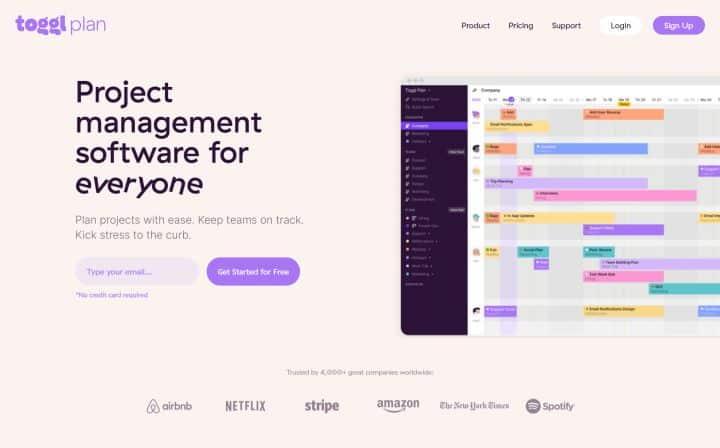
Freelance Project Management
In the world of freelancing, effective project management is crucial for success. It involves not only meeting deadlines and delivering quality work but also maintaining strong communication with clients and collaborators. A few key strategies can help you enhance your project management skills:
- Establish Clear Goals: Define the project scope, objectives, and deliverables right from the start.
- Utilize Project Management Tools: Leverage platforms like Trello, Asana, or Monday.com to keep track of tasks and deadlines.
- Regular Check-ins: Schedule weekly or bi-weekly updates with clients to discuss progress and adjustments.
- Set Up Feedback Loops: Create opportunities for receiving client feedback to ensure alignment throughout the project.
- Document Everything: Keep detailed records of communications, decisions, and changes to aid transparency.
Implementing these strategies can significantly streamline your freelance projects and build stronger relationships with your clients. Here’s a quick visual to guide you in managing multiple projects:
| Project Name | Status | Next Steps |
|---|---|---|
| Website Redesign | In Progress | Client Review |
| Marketing Campaign | Completed | Submit Report |
| Social Media Management | Pending | Start Content Creation |

Remote Freelance Jobs
Embracing the world of remote freelance work opens up a universe of opportunities, allowing you to connect with clients from around the globe. To thrive in this landscape, it is essential to cultivate a robust network that can propel your career forward. The key components of successful networking include:
- Leveraging social media: Platforms like LinkedIn, Twitter, and Instagram can help you showcase your expertise and interact with potential clients.
- Participating in online forums: Join relevant communities and contribute to discussions to build relationships and enhance your visibility.
- Attending virtual events: Webinars and online conferences can present valuable networking opportunities with industry peers and clients.
Another strategy is to maintain strong communication practices that foster trust and reliability. Consider building an effective outreach plan, which could include:
| Strategy | Description |
|---|---|
| Email follow-ups | Regularly check in with connections to keep the relationship warm. |
| Feedback requests | Ask for reviews and endorsements to enhance your credentials. |
| Personalized pitches | Tailor your proposals to address the specific needs of prospective clients. |

Freelance Photography
To excel in the competitive world of , cultivating a solid network is essential. By actively participating in photography communities—both online and offline—photographers can share experiences, inspiration, and opportunities that may not be readily available otherwise. Consider the following strategies to enhance your networking:
- Attend workshops and local photography events to meet like-minded professionals.
- Utilize social media platforms to showcase your portfolio and connect with potential clients.
- Join photography groups on platforms like Facebook or Instagram to engage with peers.
- Volunteer your skills at community events, which can lead to valuable contacts.
Networking isn’t just about making contacts; it’s about building relationships over time. Develop a genuine interest in the work of others and foster connections that can lead to collaborations and referrals. Creating a simple table to help streamline your networking efforts can also be beneficial:
| Networking Strategy | Action Plan |
|---|---|
| Local Meetups | Join or arrange a monthly photography meet. |
| Online Portfolio | Regularly update and share your work on your website. |
| Collaborations | Discuss and propose joint projects with fellow photographers. |

Freelance Video Editing
In the ever-evolving landscape of , the ability to forge and nurture connections can significantly influence your career trajectory. Building a solid network not only opens doors to potential clients but also cultivates avenues for collaboration with other creative professionals. This involves not just meeting new people but also maintaining relationships that offer mutual benefits, such as sharing insights, resources, or referrals. Consider engaging in activities that amplify your visibility in the community:
- Participate in online forums and groups: Join platforms like Reddit, Facebook, or specialized video editing communities to connect with fellow editors.
- Attend industry events: Make time for workshops, conferences, or local meetups where you can engage with potential clients and collaborators.
- Create a standout portfolio: Showcase your best work online to attract attention and demonstrate your unique style.
To effectively leverage your network, remember the importance of consistent communication. Regularly update your contacts on your work, share helpful resources, and provide feedback when possible to keep relationships thriving. It’s also beneficial to develop a structured approach for managing your connections, perhaps by creating a simple contact table to track potential leads:
| Contact Name | Connection Date | Follow-up Action | |
|---|---|---|---|
| John Doe | johndoe@example.com | 2023-06-15 | Send project update |
| Jane Smith | janesmith@example.com | 2023-07-20 | Share article link |
| Alex Johnson | alexjohnson@example.com | 2023-08-30 | Schedule call |

Freelance Social Media Manager
As a , establishing a robust network is essential for securing clients and advancing your career. Building relationships isn’t just about business; it’s about forging connections with individuals who share your passion for digital communication. To enhance your networking strategy, consider the following tactics:
- Join niche-specific online communities: Engage in forums and social media groups where like-minded professionals and potential clients share insights.
- Attend industry events: Conferences and workshops are excellent opportunities to meet others in the field face-to-face.
- Maintain a strong LinkedIn profile: Regularly update your profile, share relevant content, and connect with industry leaders.
Effective networking not only increases your visibility but also builds your reputation as a knowledgeable professional. It’s crucial to nurture these relationships by consistently contributing value through your insights and expertise. To structure and maintain these connections, consider using a simple tracking system:
| Name | Connection Method | Last Contact |
|---|---|---|
| Jane Doe | September 15, 2023 | |
| John Smith | Networking Event | October 1, 2023 |
| Emily White | October 5, 2023 |
This way, you can effortlessly keep track of your connections and ensure that you continually engage with your network.

Freelance SEO Expert
As a professional in the realm of search engine optimization, your ability to forge meaningful connections in the freelance landscape is paramount. Networking isn’t just about exchanging business cards or LinkedIn connections; it’s about creating a supportive ecosystem that nurtures growth and collaboration. Consider attending industry conferences, engaging in online forums, and joining local SEO meet-ups to expand your reach. By actively participating in these communities, you can showcase your expertise, gain insights into the latest trends, and establish yourself as a trusted authority in your field.
Building a personal brand is equally crucial when it comes to attracting clients. Take time to curate your online presence through a professional website, insightful blog posts, and an engaging social media strategy. Here’s a quick checklist to enhance your visibility:
- Optimize your website for search engines.
- Share your knowledge through guest blogging.
- Network with peers via social platforms.
- Create video content showcasing tips and tricks.
| Strategy | Description |
|---|---|
| Content Marketing | Produce valuable content that showcases your expertise. |
| Social Engagement | Interact with other professionals and potential clients online. |
| Collaborations | Partner with other freelancers for joint projects. |

Freelance Copywriting
In the world of , forging connections is crucial for growth and success. Building a robust professional network can open doors to new opportunities and enhance your reputation in the industry. To effectively expand your network, consider engaging in various online communities, attending industry workshops, or participating in webinars. Here are some strategies to help you connect with fellow copywriters and potential clients:
- Join online platforms: Websites like LinkedIn, Upwork, and Fiverr can help you connect with other professionals.
- Participate in local networking events: Attend meetups or seminars to meet potential clients and peers face-to-face.
- Engage in social media: Share your insights, comment on industry news, and connect with influencers on Twitter and Instagram.
- Collaborate with others: Team up with designers or marketers to create joint projects and share leads.
Furthermore, nurturing your existing relationships is just as important as establishing new ones. Regularly reaching out to former clients or colleagues can keep you on their radar for future opportunities. Consider creating a simple outreach schedule to stay in touch. Below is a quick table to illustrate effective follow-up strategies:
| Frequency | Method | Content Ideas |
|---|---|---|
| Monthly | Share a helpful article | |
| Quarterly | Social Media | Comment on their posts |
| Bi-Annually | Phone Call | Catch up on projects |
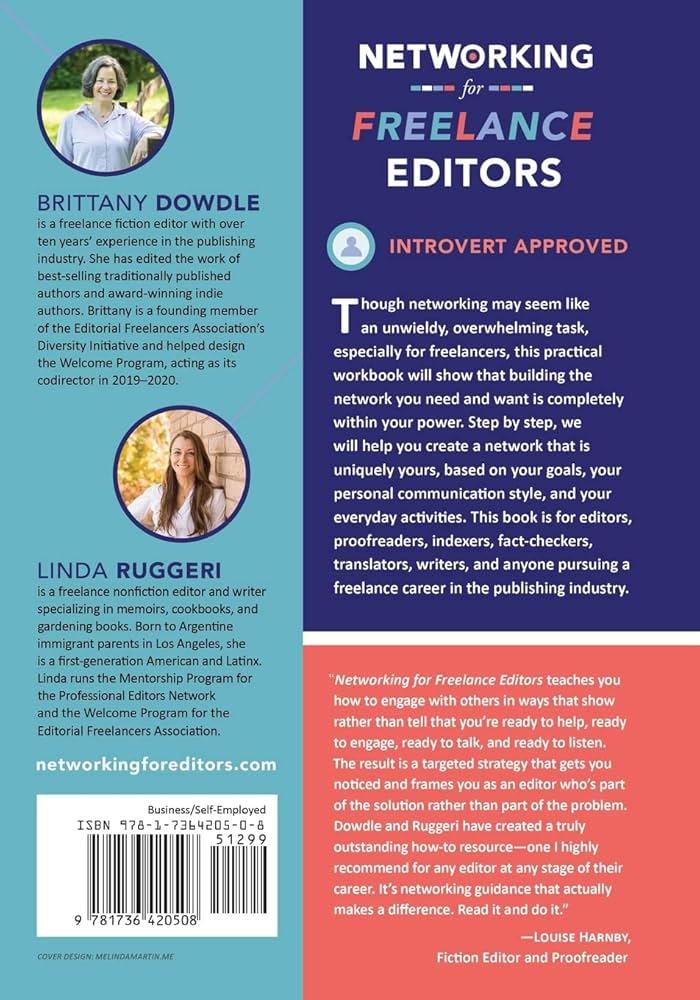
Freelance Business Tips
Networking as a freelancer isn’t just about attending events; it’s about weaving a web of genuine connections that can support your career. Start by identifying your niche and reaching out to professionals in that field. Use social media platforms, particularly those like LinkedIn and Twitter, to create meaningful relationships. Engage with their content, join discussions, and offer your insights. The key is not merely to promote yourself but to provide value to the conversation. Personalizing your outreach with tailored messages can make a significant impact, showing that you’ve done your research and truly care about building a connection.
To ensure your networking efforts are effective, consider maintaining a networking tracker to keep tabs on whom you’ve met and how you can stay in touch. Below is a simple table format to help you organize your contacts:
| Name | Contact Method | Last Interaction | Follow-up Plans |
|---|---|---|---|
| Jane Doe | 10/15/2023 | Send updates on project | |
| John Smith | 10/10/2023 | Schedule coffee chat | |
| Emily Carter | 10/05/2023 | Share article link |
Remember, networking is an ongoing process. Be prepared to nurture these relationships over time, and don’t hesitate to reach out occasionally with updates or simply to check in. Following up on past interactions will keep you relevant in their minds and might lead to unexpected opportunities, so prioritize maintaining your connections regularly.
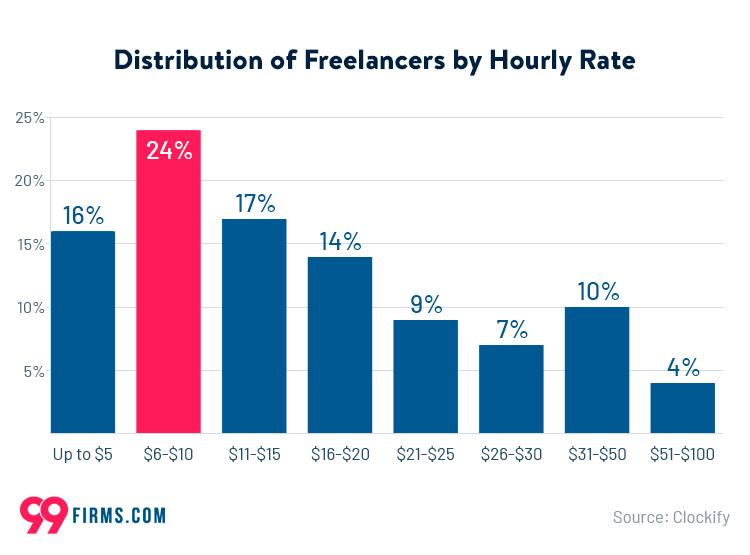
Freelance Rates and Pricing
Determining your freelance rates can feel like a balancing act, and it’s essential to approach it with creativity and strategy. Consider the value you bring to the table by assessing your skills, experience, and the unique offerings you provide to clients. Here’s a straightforward way to establish your pricing structure:
- Market Research: Analyze what other freelancers with similar skills are charging.
- Service Differentiation: Identify what sets you apart; this could justify a higher rate.
- Cost Consideration: Ensure your rates cover living expenses and business costs.
- Trial and Adjustment: Start with a competitive rate and adjust based on client feedback and demand.
Ultimately, transparency is key when discussing rates with potential clients. Create a clear pricing structure that outlines different services, expectations, and deliverables. This can help clients understand the value they receive and simplify the negotiation process. Consider using a table format to present your services and rates effectively:
| Service | Rate | Duration |
|---|---|---|
| Hourly Consultation | $50/hr | 1 hour |
| Full Project Package | $1,000 | 2-4 weeks |
| Social Media Management | $300/month | Ongoing |

Building a Freelance Portfolio
Creating an engaging freelance portfolio is crucial for showcasing your skills, experience, and unique style to potential clients. To get started, focus on selecting your best work that highlights your strengths and demonstrates the variety of services you offer. A well-organized portfolio not only reflects your professionalism but also makes it easier for clients to see how your expertise aligns with their needs. Consider including the following elements:
- Personal Branding: Use consistent colors, fonts, and logos.
- Case Studies: Detail the challenges faced, solutions provided, and outcomes achieved.
- Testimonials: Include feedback from previous clients for credibility.
- Contact Information: Make it easy for clients to reach you.
Furthermore, integrating an interactive component can elevate your portfolio. This might include a blog section where you share your thoughts on industry trends or tips related to your field of expertise. Personal stories behind your projects can establish a deeper connection with potential clients. A clear layout is essential; use tables for structured information.
| Project Name | Client | Year |
|---|---|---|
| Brand Reimagination | ABC Corp | 2022 |
| Web Development | XYZ Ltd | 2023 |
| Social Media Campaign | 123 Inc | 2022 |
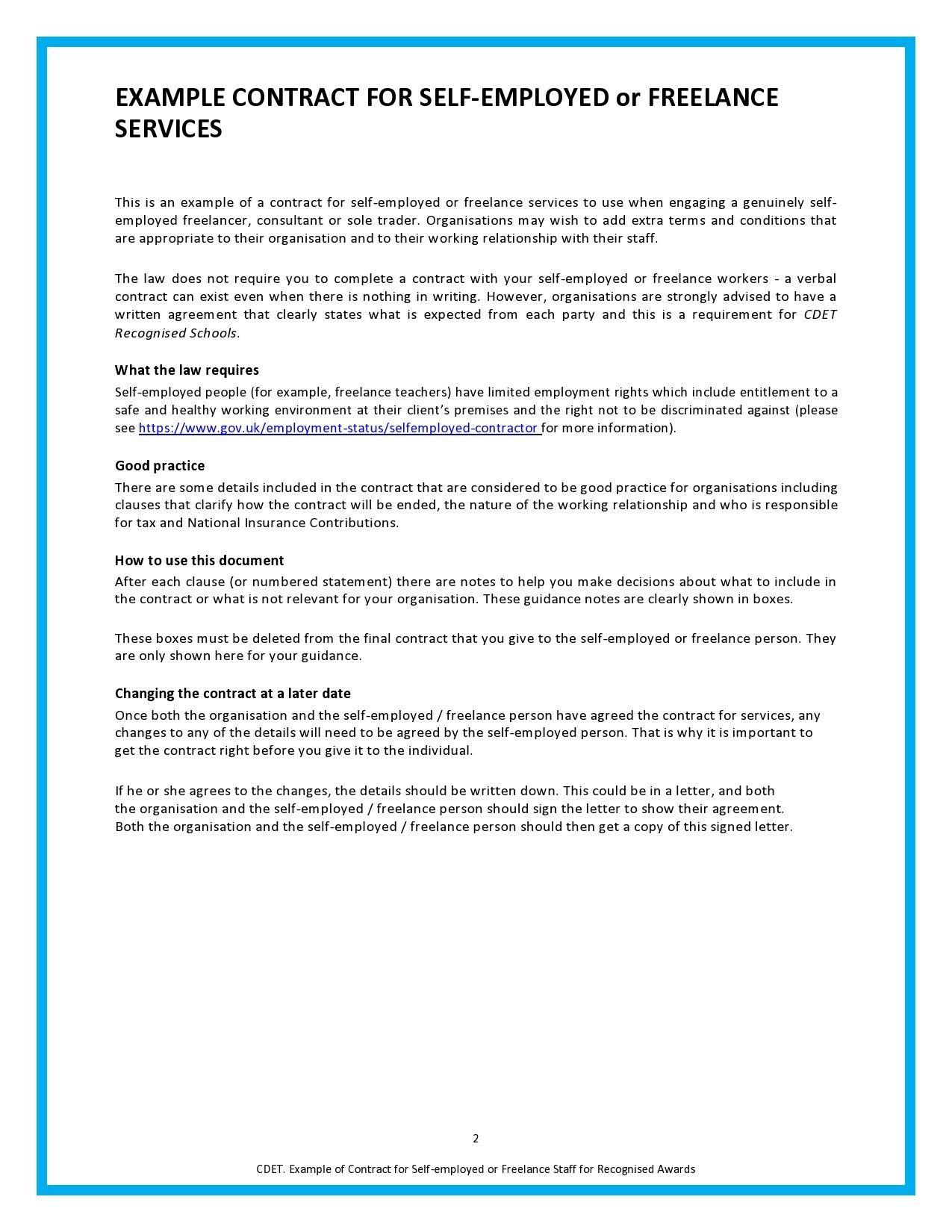
Freelance Contract Templates
When embarking on freelance work, having clear and comprehensive contract templates is essential. Not only do they protect your rights and clarify your obligations, but they also serve as a professional representation in your dealings with clients. A well-crafted contract outlines crucial elements like scope of work, payment terms, and deadlines, ensuring that both parties have aligned expectations from the outset. You can customize these templates to fit different projects or clients, making them versatile tools in your freelance arsenal.
Consider incorporating the following elements into your contract templates to enhance their effectiveness:
- Project Details: Clearly define what the project entails and what is excluded.
- Payment Schedule: Specify when payments are due and any late fees that may apply.
- Confidentiality Clause: Protect sensitive information both parties may exchange.
- Termination Terms: Outline how either party can terminate the contract and the processes involved.
| Template Name | Key Features |
|---|---|
| Basic Freelance Agreement | Standard terms, payment schedule, and confidentiality. |
| Creative Project Contract | Flexible revisions, ownership rights, and scope clarity. |
| Consulting Services Agreement | Detailed deliverables and hourly rate specifications. |

Freelance Time Management
Effective time management is crucial for freelancers, as it directly influences productivity and success. To navigate this challenging landscape, consider implementing these strategies:
- Set clear goals: Define what you want to achieve in a day, week, or month, ensuring that your goals are Specific, Measurable, Achievable, Relevant, and Time-bound (SMART).
- Prioritize tasks: Use techniques like the Eisenhower Matrix to distinguish between what is urgent and important, allowing you to focus on high-impact activities.
- Establish a routine: Develop a daily schedule that reflects your peak productivity hours, helping you create a structured environment conducive to getting work done.
- Utilize tools: Leverage applications such as Trello, Asana, or toggle timers that can help track time and manage project workload seamlessly.
In addition to these basics, embracing flexibility within your schedule can create opportunities for networking. By allocating specific time slots to connect with fellow professionals or attend industry events, you foster relationships that may lead to collaborations or referrals. Consider using the following tips:
| Activity Type | Suggested Time |
|---|---|
| Networking Events | Once a month |
| Follow-up Calls/Emails | Weekly |
| Social Media Engagement | Daily |
| Collaborative Projects | As needed |
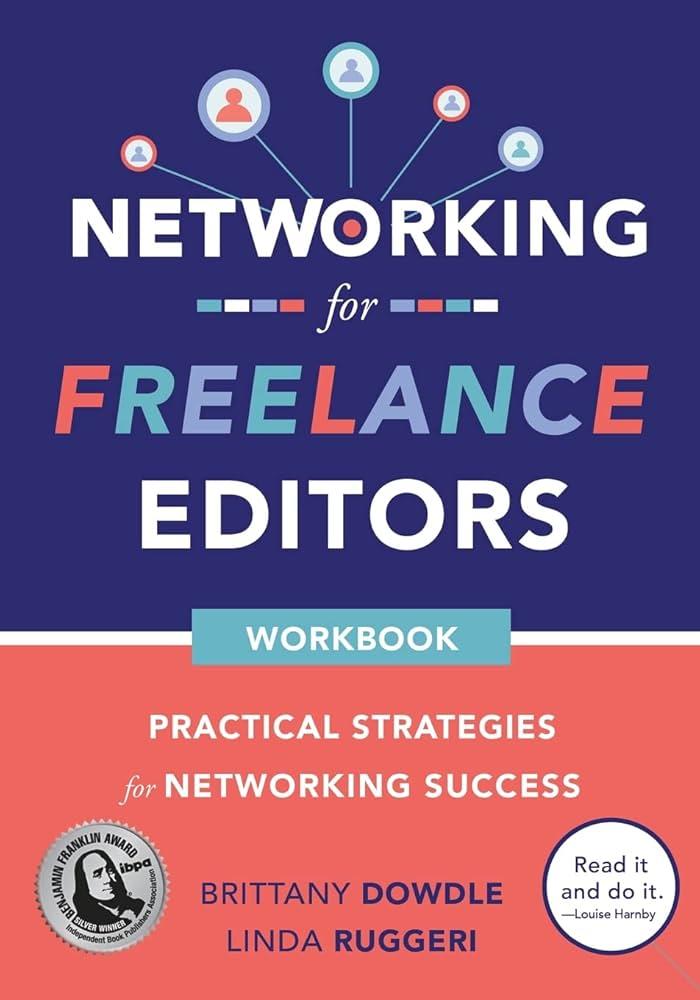
Freelance Networking
In the evolving world of freelancing, building a robust network is essential for creating opportunities and fostering collaborations. Strategically engaging with peers and potential clients can significantly enhance visibility and lead to fruitful partnerships. To effectively connect with others in your field, consider the following tactics:
- Attend Events: Participate in industry conferences, workshops, and meetups to meet like-minded professionals and potential clients.
- Join Online Communities: Engage in forums, social media groups, and platforms like LinkedIn to seek advice and share knowledge.
- Offer Value: Share your expertise through blogs, webinars, or free resources to establish credibility within your network.
Creating a diverse network can open doors to new opportunities and collaborations. Build relationships not just for immediate gain but to cultivate a supportive community that thrives on mutual benefits. Here’s how to approach your networking efforts:
| Approach | Effectiveness |
|---|---|
| Follow-Up | Maintains connections and shows commitment |
| Personalized Messages | Increases engagement and fosters relationships |
| Collaboration Projects | Enhances visibility and expands your skill set |

Freelancing in Tech
In the ever-evolving landscape of technology, freelancing offers remarkable flexibility and the opportunity to work on a diverse array of projects. To thrive in this competitive arena, fostering robust relationships within your network is crucial. Consider cultivating connections through various avenues:
- Online Platforms: Engage with communities on LinkedIn, GitHub, and other specialized forums.
- Networking Events: Attend local and virtual tech meetups, workshops, and hackathons.
- Social Media: Use Twitter and Instagram to follow industry leaders and participate in relevant discussions.
- Professional Groups: Join industry-specific associations and participate actively.
Moreover, effective communication is key to establishing and maintaining these connections. Building genuine relationships requires more than just sharing your resume; it’s about engaging in meaningful conversations and showcasing your expertise. Here are some strategies to enhance your networking:
| Strategy | Description |
|---|---|
| Follow Up | Send thank-you messages after meetings or events to reinforce connections. |
| Resource Sharing | Offer valuable resources, articles, or tools relevant to your peers. |
| Collaboration | Seek opportunities to collaborate on projects that align with mutual interests. |

Freelance Taxes and Accounting
Navigating the world of freelance work comes with its own set of responsibilities, especially when it comes to taxes and accounting. Freelancers must be proactive in managing their finances to avoid any surprises during tax season. Maintaining organized financial records is essential; this includes tracking income, business expenses, and invoice details. Consider investing in accounting software or using spreadsheets to streamline the process. Here are some key aspects to keep in mind:
- Estimated Taxes: Set aside a percentage of your income for quarterly estimated tax payments.
- Deductions: Familiarize yourself with common deductions available for freelancers, such as home office expenses and travel costs.
- Record Keeping: Keep receipts and documentation for all business-related expenses.
To further simplify your tax obligations, consider working with a professional accountant who specializes in freelance taxes. They can provide personalized guidance tailored to your unique situation, ensuring that you’re taking advantage of every opportunity while staying compliant. Here’s a quick overview of how different income streams may impact your tax situation:
| Income Type | Tax Implications |
|---|---|
| Freelance Projects | Self-employment taxes apply. |
| Royalties | Considered passive income, potentially taxed differently. |
| Sponsorship Income | Must be reported; can include business expenses. |

Freelance Client Retention
Building lasting relationships with clients is crucial for sustaining a thriving freelance career. To improve client retention, consider implementing the following strategies:
- Effective Communication: Keep your clients in the loop, provide regular updates, and respond promptly to queries.
- Quality Work: Always deliver your best work and meet deadlines to build trust and reliability.
- Personal Touch: Acknowledge your clients’ milestones or send personalized notes, showing you value their partnership.
- Seek Feedback: Regularly ask for feedback to demonstrate your commitment to improvement and collaboration.
In addition to these techniques, consider using a simple tracking system to monitor client interactions and their satisfaction levels. A table like the following can help you organize this information effectively:
| Client Name | Last Contact Date | Satisfaction Rating | Next Steps |
|---|---|---|---|
| Jane Doe | 2023-10-01 | 5/5 | Send project update |
| John Smith | 2023-09-28 | 4/5 | Request feedback |
| Company XYZ | 2023-10-03 | 5/5 | Schedule next meeting |

Freelancing Full-Time vs Part-Time
Choosing between freelancing full-time and part-time can significantly influence your networking strategies and professional relationships. Full-time freelancers immerse themselves in their craft and client interactions, often leading to a deeper understanding of industry dynamics and enhanced reputation. They tend to build a broader, more diverse network, as they are dedicating significant hours to outreach and collaboration. On the other hand, part-time freelancers usually balance their freelance work with other commitments, which may limit their networking opportunities. However, this arrangement can also lead to unique connections through varied environments, such as workplace colleagues or community circles, enriching their professional circle in unexpected ways.
Regardless of the time commitment, effective networking remains a cornerstone of freelance success. Some strategies to consider include:
- Leveraging Social Media: Use platforms like LinkedIn, Twitter, and Instagram for building connections and showcasing your work.
- Participating in Local Events: Engage in workshops, seminars, or meetups that provide opportunities to meet potential clients and collaborators.
- Joining Online Communities: Participate in forums and groups related to your niche to connect with like-minded professionals.
To help visualize the potential benefits, the following table summarizes the advantages of each freelancing approach:
| Freelancing Type | Advantages |
|---|---|
| Full-Time |
|
| Part-Time |
|

Freelance Job Boards
In the realm of freelance work, job boards serve as the essential hubs where talent meets opportunity. By harnessing these platforms, freelancers can broaden their reach and connect with potential clients seeking their unique skills. Whether you’re a seasoned professional or just starting your journey, here are some of the most popular job boards that can help you get your foot in the door:
- Upwork – A well-known platform featuring a wide array of job categories.
- Freelancer – Offers competitive bidding and an extensive listing of projects.
- Fiverr – Ideal for freelancers who want to showcase specific services at set prices.
- PeoplePerHour – Caters to freelancers seeking hourly or project-based work.
- Guru – Focuses on creating lasting relationships between freelancers and clients.
| Platform | Description | User Base |
|---|---|---|
| Upwork | Diverse job categories and long-term projects. | Large |
| Fiverr | Service-oriented gigs with fixed pricing. | Growing |
| Freelancer | Competitive bidding for quality projects. | Extensive |
| PeoplePerHour | Focus on localized and freelance jobs. | Moderate |
| Guru | Long-term projects and relationship building. | Dedicated |
Engaging with these platforms not only fosters opportunities but also expands your professional network. Each board comes with its own distinct set of features, allowing freelancers to tailor their approach based on personal preferences and skill sets. Active participation, such as regularly updating your portfolio, bidding on projects, and responding promptly to client inquiries, will significantly enhance your visibility and chance of success. When leveraged effectively, these resources are your bridges to a thriving freelance career.

Freelance Branding Strategies
Establishing a compelling personal brand is vital for freelancers aiming to stand out in a crowded market. Begin by defining your unique value proposition (UVP)—what sets you apart from others in your field. Once you’ve identified your UVP, focus on maintaining a consistent visual and verbal identity across all platforms. This includes your website, portfolio, social media profiles, and even email communications. Consider the following elements to strengthen your branding:
- Visual Identity: Choose a color palette and font style that reflects your personality.
- Content Style: Develop a tone of voice that resonates with your target audience.
- Showcase Testimonials: Gather feedback from past clients to demonstrate credibility.
Building your network is equally important as developing your brand. Don’t hesitate to seek opportunities for collaboration, whether through online platforms or local events. Leverage social media to engage with others in your industry, share insights, and offer support. An effective way to approach networking is to join niche-specific communities or groups, allowing you to build relationships in your desired space. To navigate this efficiently, consider keeping track of your connections using a simple table:
| Contact Name | Platform | Last Contacted |
|---|---|---|
| Jane Doe | October 1, 2023 | |
| John Smith | September 25, 2023 | |
| Emily Johnson | October 5, 2023 |

Freelancing in Graphic Design
In the ever-evolving world of freelancing, graphic design stands as a vibrant arena where creativity meets opportunity. To thrive, designers must navigate not only their artistic capabilities but also the intricate web of professional connections that can fuel their careers. Networking isn’t merely about exchanging business cards; it’s about fostering genuine relationships within communities that share a passion for creativity. Consider the following tactics to enhance your visibility and forge meaningful alliances:
- Social Media Engagement: Utilize platforms like Instagram and Behance to showcase your work while engaging with other designers and potential clients.
- Participate in Design Contests: These can provide exposure and the chance to connect with other creatives and industry professionals.
- Join Online Forums: Participate in discussions on platforms like Reddit and design-centric groups on Facebook to share insights and gather feedback.
Moreover, understanding the value of collaborative projects can open doors to new opportunities. Forming partnerships with complementary freelancers, such as writers or web developers, can lead to joint ventures that benefit all parties. Track your collaborative successes and strategize future projects based on combined strengths and client feedback. Here’s a quick overview of effective collaboration strategies:
| Collaboration Strategy | Benefits |
|---|---|
| Joint Portfolio Projects | Showcases diverse skills and attracts larger clientele. |
| Cross-Promotional Activities | Expands reach in different markets and demographics. |
| Skill Exchange Programs | Enhances individual capabilities while reducing costs. |

Freelance Personal Development
Networking as a freelancer is not just about collecting contacts; it’s about cultivating relationships that can lead to sustainable growth. To build effective connections, focus on creating genuine interactions. Attend industry events, engage in online communities, and make an effort to understand the needs of your peers. Leverage platforms like LinkedIn to not only showcase your expertise but also to share insights and contribute to discussions. This creates an image of a reliable resource, fostering a sense of trust among your network.
To maximize your networking potential, consider the following strategies:
- Follow Up: After meeting someone, send a brief personalized message to reaffirm the connection.
- Offer Value: Share resources, tips, or insights that could benefit your contacts.
- Collaborate: Look for opportunities to work with others on projects that align with your skills and interests.
| Networking Strategy | Description |
|---|---|
| Attend Workshops | Engage in hands-on learning while meeting like-minded professionals. |
| Join Online Forums | Participate in discussions and share your expertise with a wider audience. |
| Host Webinars | Lead a session to showcase your skills and attract potential clients. |
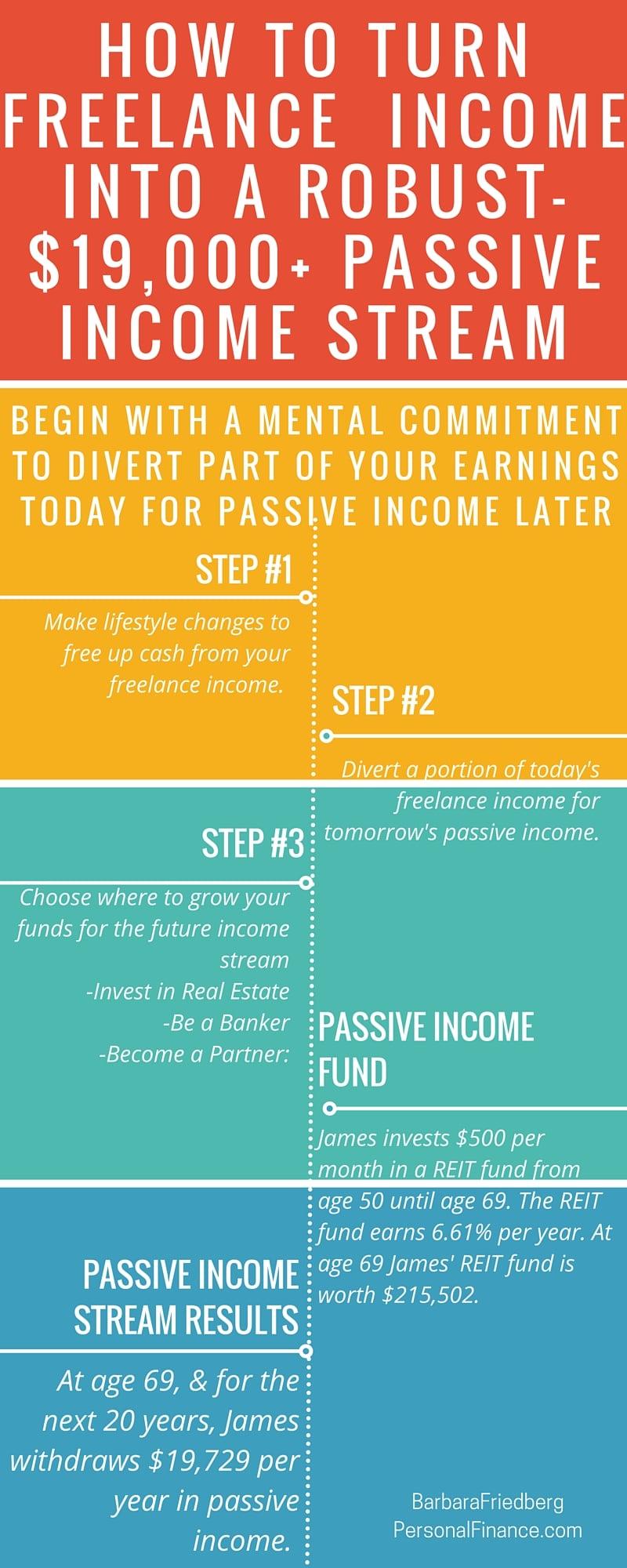
Freelance Income Diversification
Diversifying your freelance income is akin to creating a safety net that can cushion you during unpredictable times. Many successful freelancers have discovered the power of multiple income streams, which not only stabilizes finances but also opens up new avenues for creative exploration. Consider the following strategies:
- Expand your service offerings: If you’re a graphic designer, why not add social media management or content creation to your repertoire?
- Explore passive income: Create online courses, write eBooks, or design templates that can be sold repeatedly.
- Collaborate on projects: Partnering with other freelancers can help you tap into different markets and resources.
To assist you in visualizing your income diversification plans, here’s a simple table highlighting potential income streams:
| Income Stream | Description | Potential Earnings |
|---|---|---|
| Freelance Projects | One-off jobs with clients in your expertise area. | $500 - $5,000 per project |
| Online Courses | Teaching skills you have to a wider audience. | $20 – $200 per student |
| Affiliate Marketing | Promoting products and earning a commission on sales. | $50 – $1,000 per month |
| Sponsorships | Collaborating with brands for exposure. | $200 – $2,000 per partnership |
Freelance Career Growth
In the ever-evolving landscape of freelancing, building a robust network is paramount for career advancement. Effective networking goes beyond merely attending events or joining online groups; it requires a strategic approach to foster meaningful relationships. Consider engaging with your peers through various platforms, such as:
- Social Media: Utilize LinkedIn, Twitter, and niche platforms to connect with other freelancers and potential clients.
- Online Communities: Participate actively in forums and groups that align with your expertise, offering insights to establish your authority.
- Networking Events: Attend workshops, webinars, and industry meetups to establish face-to-face connections that could lead to collaborative opportunities.
As you cultivate your network, keep in mind the importance of reciprocity in relationships. Reach out to others not just when you need something; offer your support and resources as well. This approach can create a sense of community that fosters mutual growth. Here’s a simple table outlining some effective methods to enhance your networking capabilities:
| Networking Method | Benefits |
|---|---|
| Join Professional Groups | Access to exclusive opportunities and resources. |
| Host Webinars | Showcase expertise and attract potential clients. |
| Follow-up with Contacts | Nurture relationships for future collaboration. |
Freelance Market Trends 2024
The freelance landscape is evolving rapidly, driven by advancements in technology and shifting workforce preferences. In 2024, remote work will continue to dominate, with an increasing number of companies adopting hybrid models that embrace flexibility. Emerging niches are also on the rise; freelancers specializing in areas such as sustainability consulting, virtual reality content creation, and AI-driven solutions may find abundant opportunities. Cultivating skills in digital marketing and personal branding is becoming essential, as clients seek not just expertise but also freelancers who can effectively communicate their value through online platforms.
Another significant trend is the emphasis on cross-industry collaboration. Freelancers will need to forge strategic partnerships to enhance their service offerings and reach wider audiences. Networking is more crucial than ever, with platforms like LinkedIn and niche communities providing fertile ground for collaboration. Setting up co-working events, virtual meetups, and leveraging social media for outreach can help freelancers build meaningful connections. Below is a simple overview of effective networking strategies:
| Networking Strategy | Description |
|---|---|
| Attend Industry Events | Engage with peers and potential clients in your field. |
| Leverage Social Media | Share insights and connect with other professionals. |
| Join Online Communities | Participate in forums or groups relevant to your niche. |
| Offer Value First | Provide help or resources to others without immediate expectation. |
Future Outlook
As we draw the curtains on our exploration of “Building Bridges: Mastering Freelance Networking Strategies,” it’s undeniable that the pathways we forge in the freelance world are both intricate and enriching. Each connection represents not just a potential opportunity but a bridge to new ideas, collaboration, and growth. In an ever-evolving landscape where adaptability is paramount, mastering these networking strategies allows freelancers to navigate with confidence and creativity.
Remember, networking is not merely about collecting contacts but cultivating relationships that inspire and empower. As you embark on your freelance journey, carry these insights with you, approach each interaction with authenticity, and weave your own tapestry of connections. Every conversation holds the potential to open doors you never knew existed.
So, step forward boldly and embrace the art of networking with intent and enthusiasm. After all, in the world of freelancing, every bridge you build strengthens not just your path but the community that weaves us all together. Here’s to forging connections that lead to success, collaboration, and lasting impact. Happy networking!




